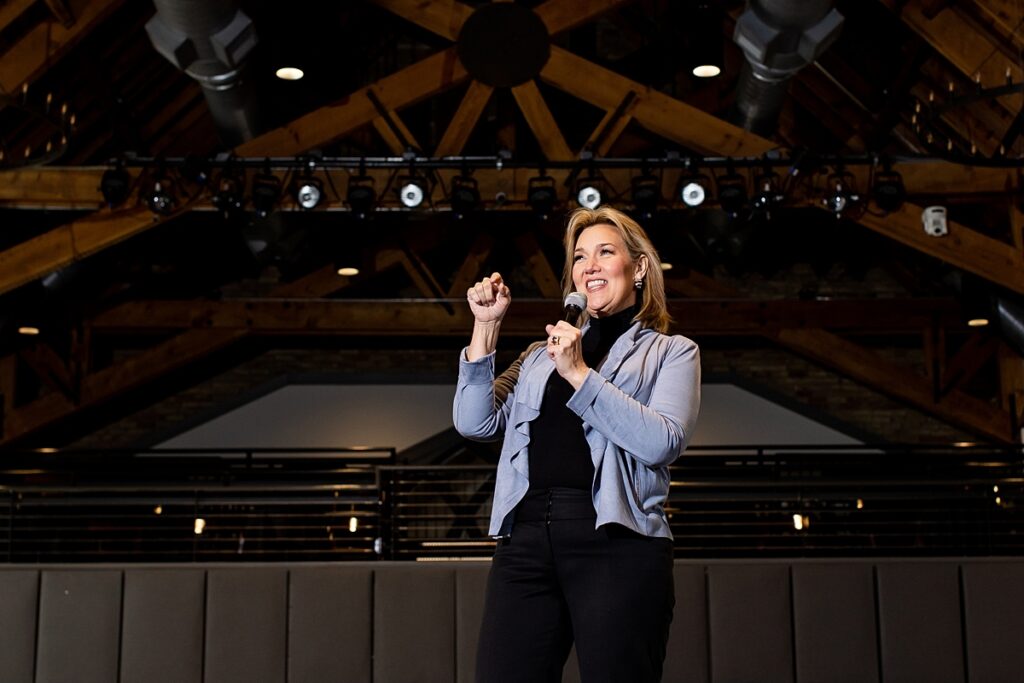
Dark Humor in Difficult Work
Format: 45-55 minute keynote or 2-hour training (CE’s available)
This program is perfect for:
- Law Enforcement; First Responders; Health Care; Funeral Personnel; Social Workers;
other high-trauma workers - Employees struggling with hard challenges on the job
The audience will leave with:
- Deeper understanding of the benefits and risks of dark humor
- Strategies to use humor to buffer against vicarious trauma
- Opportunities to develop other coping skills in the face of difficult work
Presentation Summary
When therapists, cops, nurses, and funeral directors start cracking jokes about body bags or brain trauma, it’s not because they’re heartless—it’s because their jobs are. In this refreshingly unfiltered talk, clinical and forensic psychologist (and Certified Humor Professional) Dr. Melissa Mork unpacks why the people doing society’s heaviest lifting often lean on the darkest humor. It’s not just about comic relief—it’s a psychological life raft. Equal parts science, storytelling, and “I probably shouldn’t laugh at this,” this talk explores how gallows humor helps us survive the unimaginable—without losing our humanity (or our lunch).
Delivery
This presentation can be delivered either face to face or virtually.
Vicarious Trauma: the Cost of Caring
Format: 45-55 minute keynote or 2-hour training (CE’s available)
This program is perfect for:
- Law Enforcement; First Responders; Health Care; Funeral Personnel; Social Workers; High-trauma work; Caregivers
- Employees struggling with hard challenges on the job
Your group will leave with these take-aways:
- You’re not broken—this work rewires your brain.
Burnout, emotional numbing, and dark humor aren’t personal flaws. They’re survival adaptations—and they can be unlearned or redirected. - Your empathy is your superpower, but it needs armor.
Without boundaries, regulation, and support, compassion becomes corrosive. Learning to protect your empathy is key to longevity. - You don’t have to quit the job to heal from the job.
There are tangible, evidence-based ways to recover, reset, and re-engage without leaving the profession you love (and that needs you).
In fields where trauma rides shotgun and you’re expected to stay human through it all, burnout isn’t a failure—it’s a feature. This keynote dives into the messy mental mechanics of vicarious trauma and emotional exhaustion, unpacking why the job takes such a toll (and why it’s not your fault). With humor, heart, and no toxic positivity, (but with some evidence-based strategies), this session offers real tools for reclaiming your resilience without pretending everything’s fine. Because you can’t keep pouring from an empty IV bag.
Delivery
This presentation can be delivered either face to face or virtually.


Mental Health Matters
Format: 45-55 minute keynote
This program is perfect for:
- Associations; Teachers; Rural Communities; Parents; University Faculty, Staff, Students; Religious Groups; Corporate Events
The audience will leave with:
- an understanding of who, what, when, and why mental illness hits (and what to do about it)
- a profound commitment to managing our (and our loved one’s) mental health
- strategies to locate help when needed
Presentation Summary
As a clinician and professor of Clinical Psychology, should have known when her own child was suffering. But when he attempted suicide the first time, she realized she had completely missed all of the red flags! How? She just wasn’t looking.
In this honest and straight-forward talk, Dr. Melissa Mork unpacks what to look for, how to cope, and when (and how) to locate help. Using science, storytelling (and a fairly sick sense of humor), Dr. Mork will guide you through this necessary and insightful conversation about mental illness.
Delivery
This presentation can be delivered either face to face or virtually.
Testimonials
